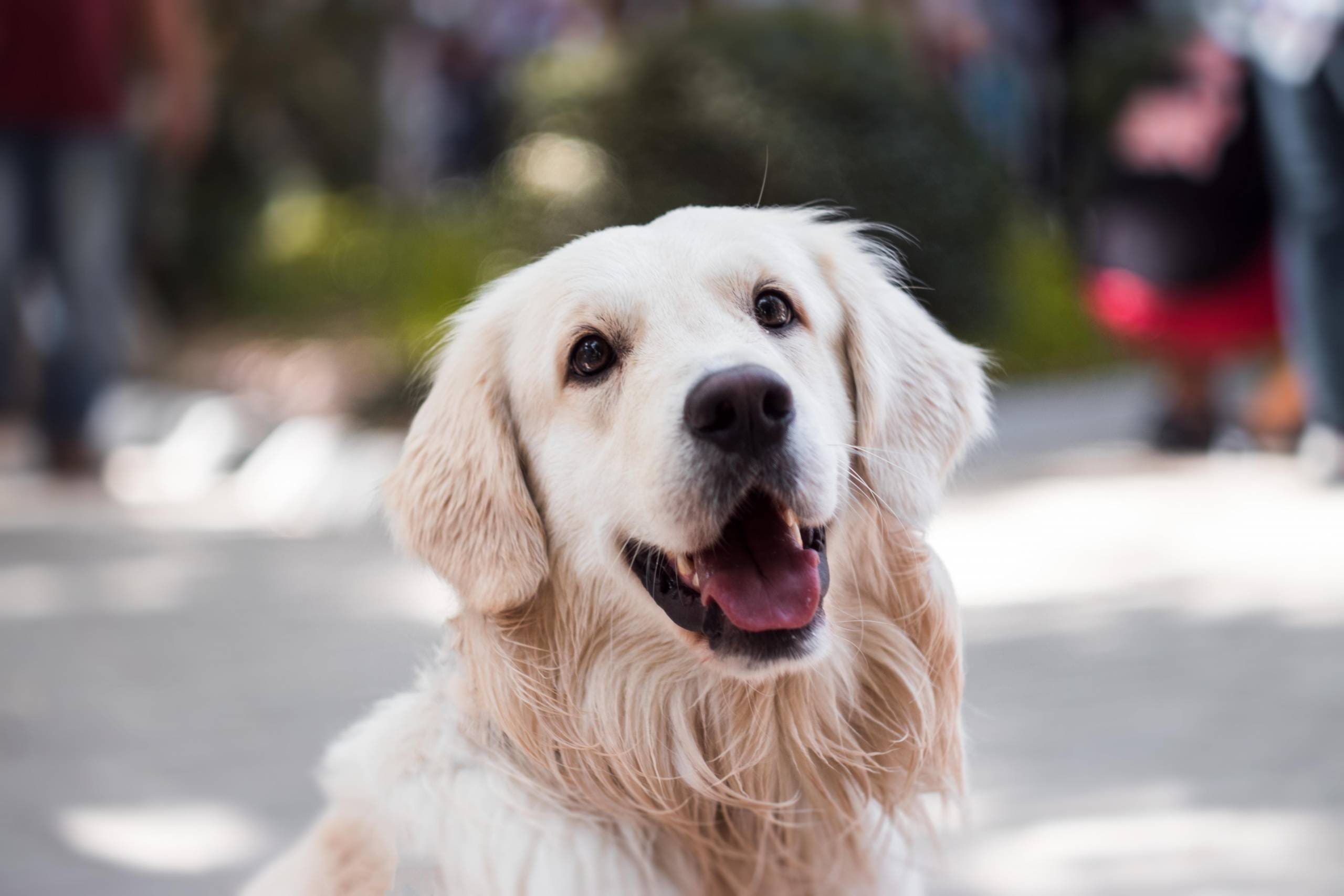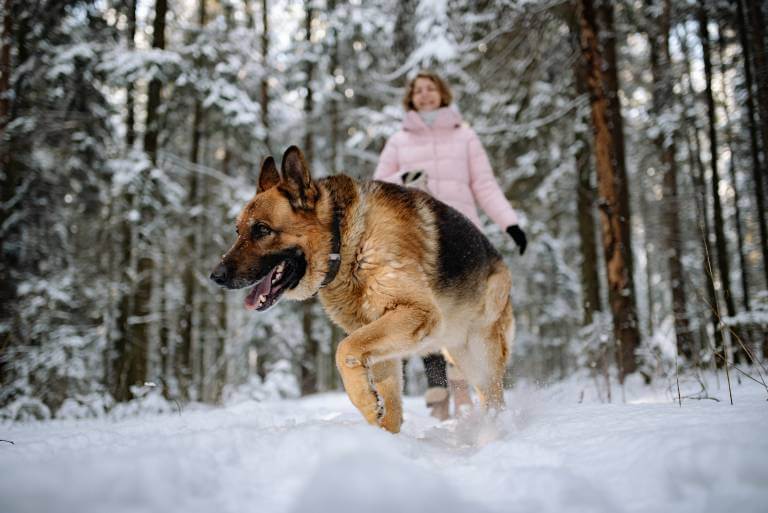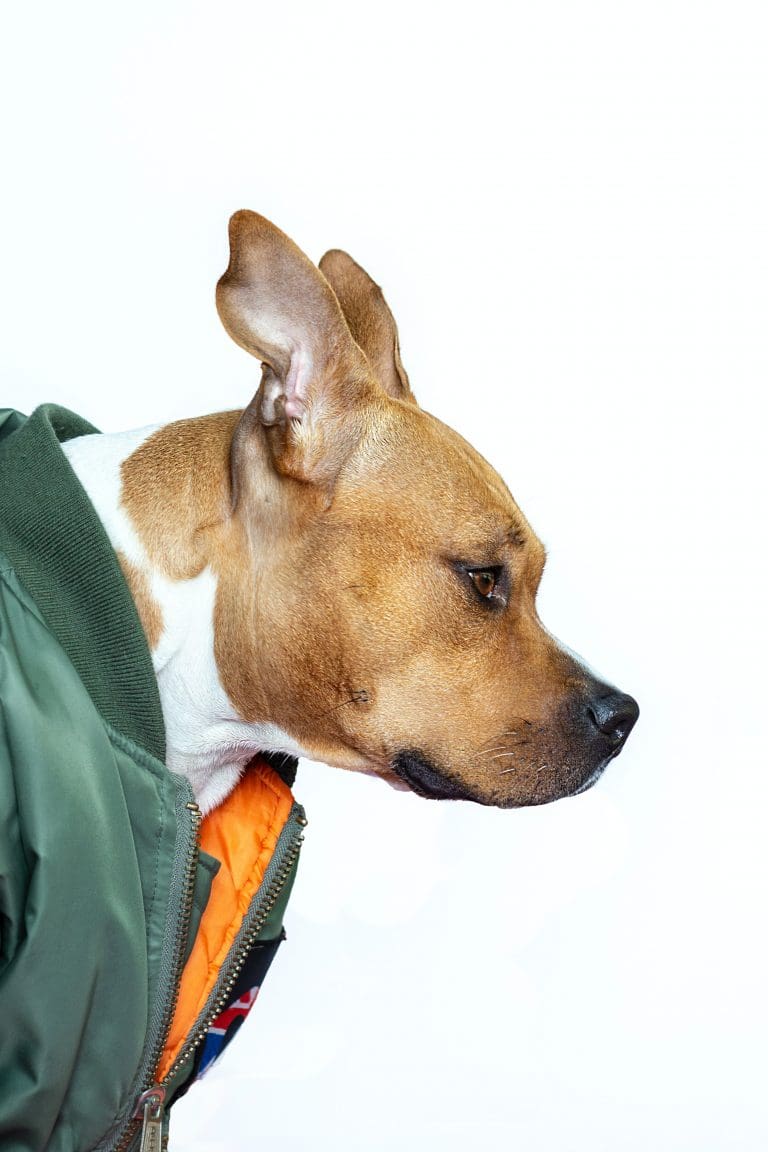Why Is My Dog Scared Of Everything?
Post Date:
December 10, 2024
(Date Last Modified: November 13, 2025)
Dogs can display fear in many different contexts, and the outward signs often reflect a mix of biology, experience, and environment. Understanding the underlying mechanisms and practical steps to help a frightened dog can improve safety and long-term welfare.
How canine fear works
At a basic level, fear is a survival mechanism that activates sensory processing, brain circuits, and hormonal responses to promote avoidance or defensive action. The acute stress response can raise circulating cortisol levels within 5–20 minutes, priming the animal for rapid fight-or-flight reactions [1].
Neural pathways involving the amygdala, hippocampus, and prefrontal regions encode threat detection and memory; repeated activation strengthens associative links between cues and fear, while safety learning weakens them. Learning processes such as classical conditioning and operant reinforcement determine whether a particular sound, place, or person will reliably trigger a fearful response.
Common causes and risk factors
Fearful profiles arise from an interaction of inherited temperament, early environment, and lifetime experiences. Some breeds and bloodlines carry temperament tendencies that make heightened vigilance or shyness more likely, while poor or missing early social exposures and traumatic events increase vulnerability. Health challenges, pain, and reduced sensory input also raise the odds that a dog will react with fear rather than curiosity.
Owner responses and household routines matter: inconsistent handling, harsh punishment, or repeated startling events can sensitize a dog and create broader generalization of fear across contexts.
Critical developmental windows
There are specific periods when experience has an outsized effect on future fear responses; for domesticated dogs the primary socialization window is approximately 3–14 weeks of age, and positive, controlled exposures in that span markedly shape tolerance for novel people, animals, noises, and places [2].
Missed or negative experiences during these phases make later counterconditioning slower and less complete, because neural circuits for social recognition and novelty tolerance are developing rapidly. Maternal behavior and early handling also influence stress reactivity: calm maternal care and gentle, brief handling tend to produce more resilient temperaments than neglectful or highly variable early care.
Medical and sensory contributors
Physical problems commonly underlie or worsen fearful behavior, because pain and neurological dysfunction change how a dog perceives and responds to the environment. Conditions such as osteoarthritis, neuropathic pain, thyroid dysfunction, and vestibular disease can present primarily as increased startle, avoidance, or aggression rather than obvious clinical signs.
For medically fragile or dehydrated patients, fluid maintenance estimates are often given as 30–40 mL/kg/day for routine crystalloid needs, with adjustments after veterinary assessment [3]. Hearing or vision loss commonly produces confusion and a higher baseline of vigilance that appears as fearfulness, because sensory cues that once signaled safety are diminished.
Because medical issues can masquerade as behavior problems, a veterinary exam and targeted diagnostics are appropriate when a normally confident dog becomes fearful or when fear emerges suddenly or with progression.
Recognizing fear: behaviors and body language
Fearful dogs use a range of postures and signals to communicate discomfort. Common signals include a lowered body, tucked tail, flattened ears, averted gaze, tightened mouth, and slow or inhibited movement. Vocal cues such as whining, high-pitched barking, or forced barking often accompany escape attempts.
| Signal | What it looks like | Likely meaning | Immediate action |
|---|---|---|---|
| Whale eye | Visible sclera when head turned | Alertness, anxiety | Reduce approach, remove trigger |
| Lip lick / yawning | Frequent single licks or yawns | Subtle stress signal | Pause activity, offer distance |
| Tucked tail | Tail close to belly | Fear, submissive avoidance | Create retreat path, provide safe place |
| Freezing / backing away | Stops moving, moves backward | Attempt to avoid threat | Do not force interaction, block hazards |
Escalation typically follows a predictable pattern: subtle stress signals progress to avoidance, then to displacement or defensive displays, and finally to attempts to escape or aggressive defense when cornered. Recognizing and responding to early signals prevents escalation and reduces risk for dog and people.
When fear becomes anxiety or phobia
Fear that is persistent, generalized, or that creates functional impairment may meet clinical thresholds for anxiety disorders; for example, patterns that continue for more than six months and interfere with daily activities or caregiving are more likely to be diagnosed as chronic anxiety or a specific phobia [5].
Specific phobias, such as storm or noise phobia, often produce intense reactions that are out of proportion to the actual risk and can co-occur with separation-related behaviors or compulsive actions. The cumulative effect is reduced quality of life, increased injury risk, and caregiving stress.
Assessing severity and seeking help
Owners can perform a structured assessment at home by mapping triggers, noting onset and progression of signs, and scoring frequency and severity of reactions across contexts. A simple checklist should capture the contexts that provoke fear, the dog’s typical signal sequence, and whether signs are worsening or linked to medical changes.
Consult a veterinarian first when fear is sudden, severe, or accompanied by other health signs; seek a certified applied animal behaviorist or veterinary behaviorist when the dog’s functioning is unsafe or when behavior modification fails to make progress. Expect behavior evaluations to include history taking, observation, and targeted medical screens to rule out pain or endocrine contributors before intensive training plans are started.
Short-term management and safety strategies
Immediate safety and stress reduction rely on minimizing exposure to known triggers, creating predictable safe spaces, and using management tools to prevent rehearsal of fearful responses. Owners should avoid punishment and instead use calm redirection and distance to let the dog recover.
- Management tools such as crates used as a retreat, visual barriers, and sound reduction help reduce acute stress.
- Calming aids like pressure wraps or dog-appeasing pheromone products can reduce arousal for some animals when used alongside other strategies.
- Emergency plans for storms or high-risk events should include a secure, comfortable area, preferred bedding, and a caregiver strategy for supervision.
Temporary medication or sedation may be appropriate for short-term events or to enable safe participation in desensitization work; such interventions should be prescribed and monitored by a veterinarian.
Long-term treatment: behavior modification and therapy
Evidence-based long-term approaches combine systematic desensitization with counterconditioning and positive reinforcement to change emotional valence for triggers. Desensitization uses graduated, controlled exposure at intensities below the dog’s threshold, paired with high-value rewards to build new, positive associations.
Programs are structured with small, repeatable steps and measured progression only after the dog consistently shows relaxed behavior at each level. For many dogs, medication prescribed by a veterinarian serves as an adjunct to reduce baseline anxiety and increase learning capacity; medications require monitoring and periodic reassessment to track functional improvement.
Prevention and resilience building
Prevention emphasizes early, gentle exposure to varied people, animals, surfaces, noises, and handling so that novelty becomes safe rather than threatening. Controlled play, confidence-building games, and predictable daily routines strengthen coping skills and reduce generalized fearfulness.
When life changes are anticipated — such as moving, adding household members, or adopting an older dog — owners should plan gradual introductions and maintain familiar caregiving patterns. Ongoing enrichment and regular training reinforce positive associations and give dogs options to engage, explore, and self-soothe.
Sources
- merckvetmanual.com — trusted clinical reference for veterinary pathophysiology and clinical care.
- aaha.org — guidance on canine socialization windows and behavior recommendations.
- avma.org — clinical resources including fluid maintenance and general veterinary protocols.
- vcahospitals.com — clinical behavior guidance and common progression patterns for stress signals.
- ncbi.nlm.nih.gov — peer-reviewed literature on chronic anxiety, phobias, and treatment outcomes.






